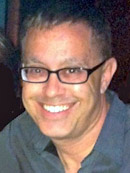
THE BRIDGE TO COLLEGE
In Praise of the Liberal Arts
By Robert A.G. LeVine

“Return on investment.” What’s the point of paying for college if your major doesn’t translate into a good career? Isn’t a liberal arts education basically useless for getting a job?
No. I’m a big believer in the liberal arts as a foundation for all things, including making money.
Let’s start by recognizing that like most terms, “liberal arts” has different definitions and connotations. Some consider those words as describing a type of school, as in “small liberal arts colleges.” While that phrase is often used, it does not adequately explain the actual education presented by a college. For example, Stanford University – which is not considered an SLA – professes that it “embodies the cornerstones of a strong Liberal Arts education.” and Harvard considers itself “a liberal arts and sciences college nestled within a world-class research university.”
However, many of our clients think of education purely as job training. Beyond the requirements of a major, they do not appreciate how a student’s other classes can assist them in obtaining and performing on the job. Wouldn’t more education in the direction of your chosen career help you make more money?
Again, no. More is not better; at least “more depth” is not better. In my opinion, “more breadth” IS better.
Let’s define liberal arts simply, to mean “broad foundation.” Then let’s discuss how “off-topic” classes can help you achieve.
In my experience – and I’ve been working for 40 years – we learn more during the first one or two months immersed in a job than we did in all the classes and internships that were supposed to train us. Career education – while valuable to get things started – provides only a foundation for the future. Things change. Even in the best school, much of what you learn becomes obsolete.
In engineering, new materials, better software and now Artificial Intelligence will make the solutions of tomorrow very different from the practices of today. In medicine, new pharmaceuticals, procedures and tests will change patient care and best practices quickly. I remember as a young professional when this new thing called “MRI” came out. What did we know about Magnetic Resonance Imaging? Well, it was less painful than a CT myelogram with contrast, and you had to take off your watch during a scan! Today, newer and more advanced diagnostic tests make medicine better. My daughter is now pregnant with her second child, and her medical care has changed dramatically in the two years since my first grandchild was born. It's amazing how blood tests can give gender and health information so much earlier!
Yet aren’t those merely advancements within the field? Isn’t this why professionals go through continuing education? Yes. Then why be concerned with the liberal arts?
Because some things never change.
Human nature – despite differences in our surrounding environments – is a constant, one which is too often overlooked or underappreciated. Understanding the human condition is a key component of every job.
In business, understanding buyers is critical for sales. If you don’t know the wants and needs of your market, your success will be limited. Language, culture, psychology, sociology, economic structures, politics, even religion … all of these human factors determine your success or failure. For this reason, I worry about specialized business programs (for example, Wharton and Stern) as being too limited in scope.
In engineering, problem solving happens after issue spotting. Because applied science is (usually) applied to human needs, things can go wrong if you understand tech but not the people who will use the tech. Steve Jobs is an infamous example. Fired after Apple’s Lisa and Macintosh computers failed to live up to sales projections, Jobs had spearheaded the development of excellent tech while misapprehending the public’s desire to purchase his tech. In the pursuit of excellence, Jobs had forgotten the business side of compsci. Oops….
In medicine, a proper diagnosis merges patient history, clinical examination, and diagnostic testing. With an incorrect or incomplete history from the patient – where does it hurt, how did it occur, etc. – the diagnosis and treatment plan will both be flawed. This is one reason why Brown University’s PLME program is designed to be a “Liberal” medical education: understand humans and humanity. Unfortunately, not all advanced medical programs are so broad-based.
Just because a school has a good reputation does not mean that its specialized curriculum is enough for you. In selecting classes, appreciate how broad, “liberal arts” concepts will affect your future more than career-focused classes that may prove obsolete or incomplete over time.
Robert LeVine is the founder and CEO of University Consultants of America, an independent educational consultancy assisting students around the world with applications to colleges, universities and graduate schools. For more information, call University Consultants of America, Inc. at 1-800-465-5890 or visit www.universitycoa.com